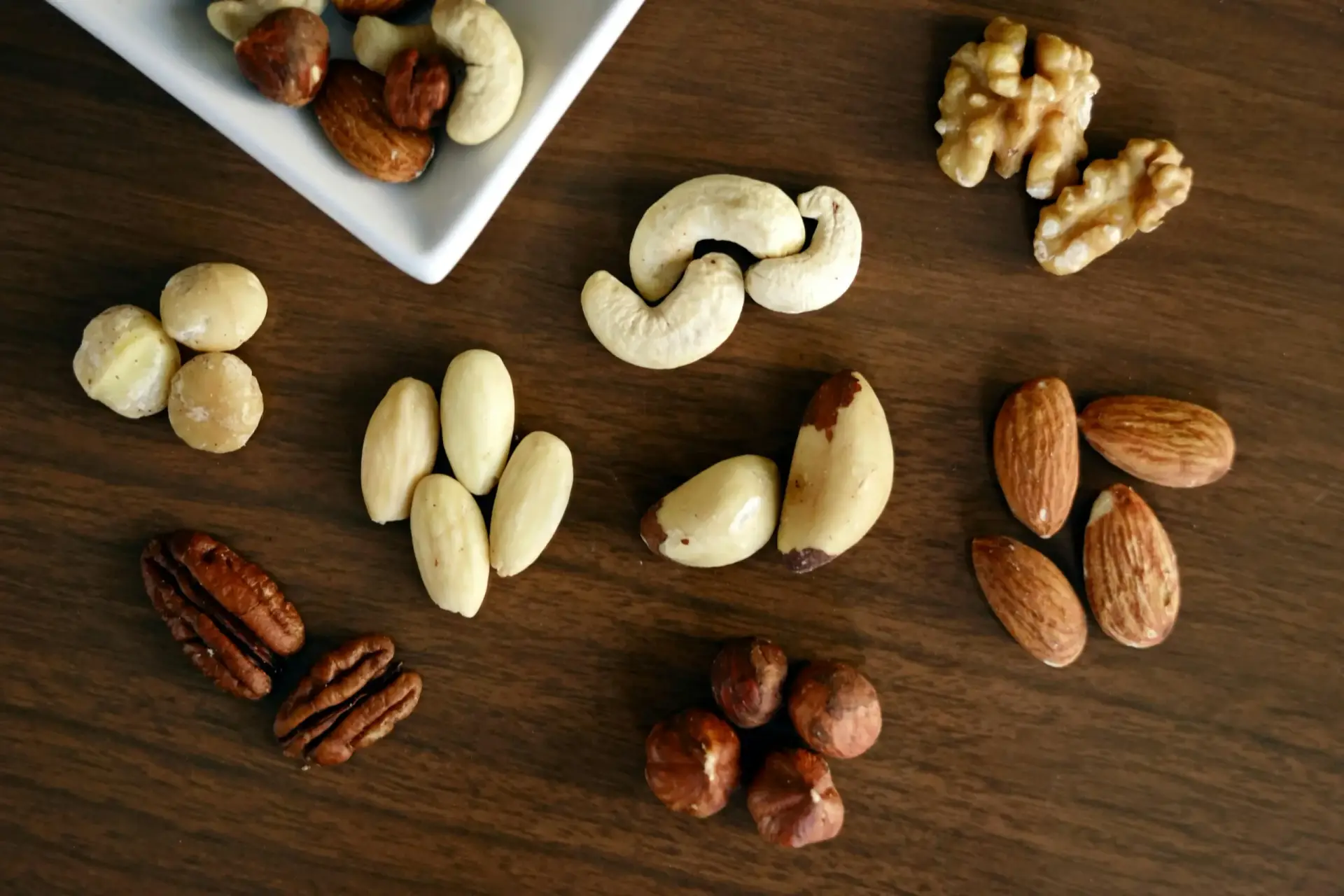
Almonds lower cholesterol by replacing unhealthy fats, providing fibre, and blocking cholesterol absorption. They’re rich in monounsaturated fats, which reduce LDL (“bad” cholesterol). Their fibre binds to cholesterol in the gut, flushing it out.
Almonds also contain plant sterols, which compete with cholesterol absorption. Studies, like one from the American Heart Association, show eating almonds daily can cut LDL by 5-10%. For best results, eat a handful (about 23 almonds) daily.
Table of Contents
- What Does Research Say?
- Almonds vs. Other Nuts – Which is Best for Cholesterol?
- How Many Almonds Should You Eat Daily?
- Best Ways to Eat Almonds for Maximum Benefits
- Can Almonds Raise Good Cholesterol (HDL)?
- Almonds + Dark Chocolate: A Heart-Healthy Combo?
- Final Thoughts: Almonds – A Simple, Powerful Tool for Heart Health
- FAQs: Almonds and Cholesterol
- Related Video | Can a Handful of Almonds Help Lower Cholesterol and Blood Sugar?
What Does Research Say?
Multiple studies confirm that almonds improve cholesterol levels. A PubMed study found that 73g of almonds daily reduced LDL by 7%. Another study in The Journal of Nutrition showed almonds raise HDL (“good” cholesterol). The Mayo Clinic notes that nuts like almonds support heart health. These findings suggest almonds are a simple, effective dietary change.
Almonds vs. Other Nuts – Which is Best for Cholesterol?
Almonds outperform many nuts for cholesterol control. While walnuts have omega-3s, almonds lead in fibre and plant sterols. A Harvard Health study found almonds reduce LDL more than cashews. However, variety matters—rotate almonds, walnuts, and pistachios for full benefits.
How Many Almonds Should You Eat Daily?
23 almonds (1 ounce) daily is ideal for cholesterol benefits. Exceeding 30-40g may add excess calories. The FDA recognises almonds as heart-healthy in this portion. For personalised advice, check HealthToLife in’s portion guide.
Best Ways to Eat Almonds for Maximum Benefits
Raw or soaked almonds retain the most nutrients. Roasting at low heat preserves benefits, but avoid salted or sugar-coated versions. Try adding almonds to oatmeal or salads. The Cleveland Clinic recommends them as a snack substitute for processed foods.
Can Almonds Raise Good Cholesterol (HDL)?
Yes—almonds may slightly boost HDL. A study in Metabolism linked almond consumption to a 4% HDL increase. Pair them with exercise and olive oil for better results. Learn more at HealthToLife.In’s HDL guide.
Almonds + Dark Chocolate: A Heart-Healthy Combo?
Dark chocolate (70 %+ cocoa) enhances almonds’ effects. Flavonoids in cocoa improve blood flow, per the American Heart Association. Aim for 1-2 squares with almonds for a heart-smart treat.
Final Thoughts: Almonds – A Simple, Powerful Tool for Heart Health
Almonds aren’t just a tasty snack—they’re a science-backed way to fight high cholesterol. By lowering LDL, boosting fibre, and even slightly raising HDL, they offer a natural edge for heart health. Pair them with dark chocolate or add them to meals for extra benefits.
But remember: Almonds work best as part of a balanced diet. Combine them with exercise, healthy fats (like olive oil), and regular check-ups for lasting results.
Ready to start? Try eating 23 almonds daily for a month and see how your body responds. For more heart-smart tips, explore HealthToLife’s nutrition guides. Your heart will thank you!
FAQs: Almonds and Cholesterol
Ques-1. How many almonds should I eat daily to lower cholesterol?
Ans: Aim for 23 almonds (1 ounce) per day. Studies show this amount reduces LDL cholesterol by 5-10% without excess calories.
Ques-2. Are roasted almonds as effective as raw almonds for cholesterol?
Ans: Lightly roasted almonds retain most benefits, but avoid oil-roasted or salted versions. Raw or soaked almonds are ideal for maximum nutrient absorption.
Ques-3. Can almonds replace cholesterol medication?
Ans: No—almonds support heart health, but aren’t a substitute for medication. Always follow your doctor’s advice.
Ques-4. Do almond milks and butters work the same as whole almonds?
Ans: No. Almond milk lacks fibre, and almond butter may have added oils. Whole, unprocessed almonds are best for cholesterol control.
Ques-5. How long does it take for almonds to lower cholesterol?
Ans: Most studies show results in 4-12 weeks. Consistency is key—eat them daily for the best effects.
Related Video | Can a Handful of Almonds Help Lower Cholesterol and Blood Sugar?
Was this article helpful?
Stay updated with the latest posts on HealthToLife—expert health tips, wellness trends, and life-changing advice you don’t want to miss. Click to explore.



